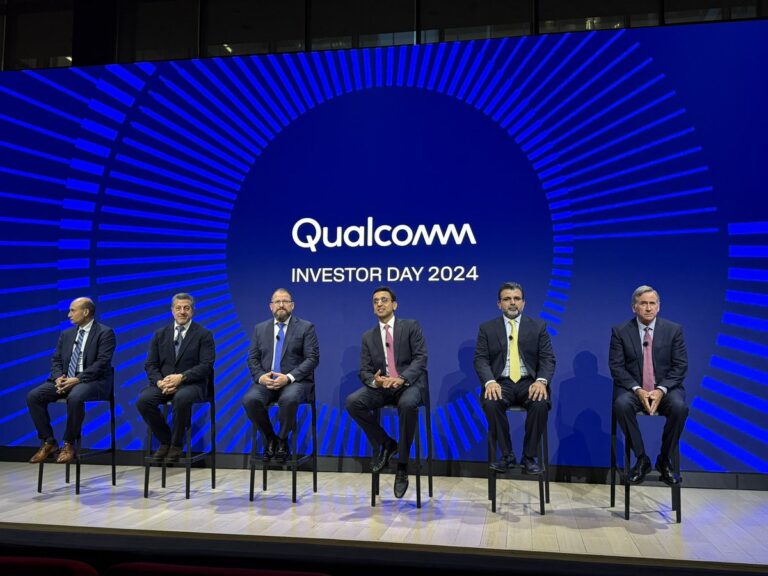AI delivery – Time to deliver.
- 2023 was dominated by hype, speculation and spending on AI training infrastructure but 2024 is where the rubber will likely meet the road.
- Already there are problems as content owners are suing to ensure that their copyrighted material is not used for training and content generation without permission.
- This is not a new problem as there was a similar furore over DJs using music samples in their mixes over 20 years ago and, despite much hand-wringing, a solution was found.
- Hence, I suspect that a solution to this will be found where the model owners compensate the rights holders through an automated compensation scheme of some kind.
- However, the real issue for 2024 is that the promises that have been made and the dollars that have been invested need to deliver some tangible results.
- This means proper revenues for companies like Anthropic or tangible productivity improvements where generative AI has been deployed within an enterprise.
- Failure is likely to trigger a sharp valuation correction underlining that we are already very likely at peak AI valuations.
AI silicon – The wrong tree.
- The AI ecosystem is currently controlled by Nvidia whose CUDA platform is the go-to place to train AI models, generative or otherwise.
- This has delivered a commanding market share position of 85%+ and despite a lot of effort from its competitors, no one has been able to make a dent in its position.
- With Nvidia’s gross margins now at 70%, these efforts are likely to be redoubled in 2024 with more silicon being announced.
- However, Nvidia’s influence on AI training does not come from silicon but from its software development platform and the tools it offers.
- Hence anyone who wants to have a credible shot at taking share from Nvidia has to ensure that its development platform is as easy to use as Nvidia with comparable performance and depth of tools and support.
- To date, I have seen very little of this with the competition being focused on process nodes, specifications and hardware features.
- Until it focuses on the software, Nvidia’s competition will continue to be barking up the wrong tree.
Macro – More benign
- After a couple of years of high inflation and elevated interest rates, the outlook is now for interest rates to begin falling somewhere around the middle of 2024.
- This is not because the Fed, the Bank of England and the ECB have tamed inflation but because the money supply and GDP should soon be back in balance.
- Inflation originally jumped because countries created money out of thin air to pay for the pandemic while economies slowed as everyone stayed at home leading to far too much money chasing fewer goods and services.
- RFM has long estimated that it will be sometime around the middle of 2024 when there will have been enough cumulative inflation to bring the money supply and the economy back into balance resulting in a decline of inflation to more normal levels.
- This looks to have been largely achieved in many developed countries and so the outlook is that interest rates can begin coming down during the year.
- This is good news for the technology industry as it makes it much cheaper to raise capital and capital-starved sectors like non-AI hardware should see a somewhat better climate in 2024.
- This is already being reflected in equity and bond valuations meaning that much of this is priced in from an investment point of view.
EVs – Double whammy
- I think 2024 is going to be a difficult year for electric vehicles as demand looks difficult while, at the same time, competition is rising.
- The main problem from a consumer point of view is cost, as the price of petrol has fallen from its highs while the price of electricity remains relatively elevated.
- Furthermore, these vehicles remain much more expensive to buy than their petrol counterparts (at the same trim level) which has shifted some purchase decisions back to petrol.
- At the same time, the Chinese have really ramped up both their volume of EVs and the quality of their product.
- Furthermore, they are coming to market at much lower prices which is why Chinese brands are appearing all over EMEA with increasing frequency.
- The big question is how these companies can make these price points and an EU investigation into whether these brands are being subsidised is currently underway.
- I think that there is quite a high probability that the EU will conclude that subsidisation is part of how the Chinese companies can meet these price points which is likely to lead to tariffs for EU imports.
- This will lead to further weakness in the EV market, which may fail to meet expectations in 2024.
AI ecosystem – The battle begins
- Unlike the mobile ecosystem, the AI ecosystem is completely undeveloped.
- OpenAI is the first mover with both ChatGPT and the development platform and store that it has launched, but its own internal struggles have given competitors a leg up.
- This is going to continue to be a problem while the company (and some of its peers) continue to endure the natural conflict between philanthropy and for-profit.
- The key platform here is the foundation model (GPT, Gemini, LlaMa etc) because this is very difficult to change once one has trained one’s service to run on one of these.
- As a result, 2024 is going to see the beginning of the battle for the hearts and minds of both developers and users.
- This will be played out during developer conference season where I expect all of the big platforms to make their case for why developers should use their foundation model and no one else’s.
- This is how a digital ecosystem is built and it is essential to kick-start the developer/user virtuous circle if one is to succeed.
- Meta Platforms is likely to double down on open source while Google will highlight its leading technology and existing services and every offering will be slightly different.
- Just like the mobile ecosystem, I suspect that there will be 2 or 3 large ones and a series of niche offerings for specific use cases.
- It is likely to be the same names slugging it out, but this does not mean that it will be Apple and Google that win.
- A new technology like this presents the best opportunity for a newcomer or previous underdog to take the top slot.










Blog Comments
andyinsdca
January 9, 2024 at 9:20 am
On EVs: There’s also a problem with the cost of repairing EVs. There are a couple of vids on Youtube showing bills of $60K (CAD) to replace the batteries in Ioniq5 cars after sustaining road damage (both were totaled by insurance) and a bill over $20K for a battery replacement in a Chevy Volt/Bolt. At that point, it’s cheaper to get a new car. And then what happens to the damaged batteries? Can they be recycled?